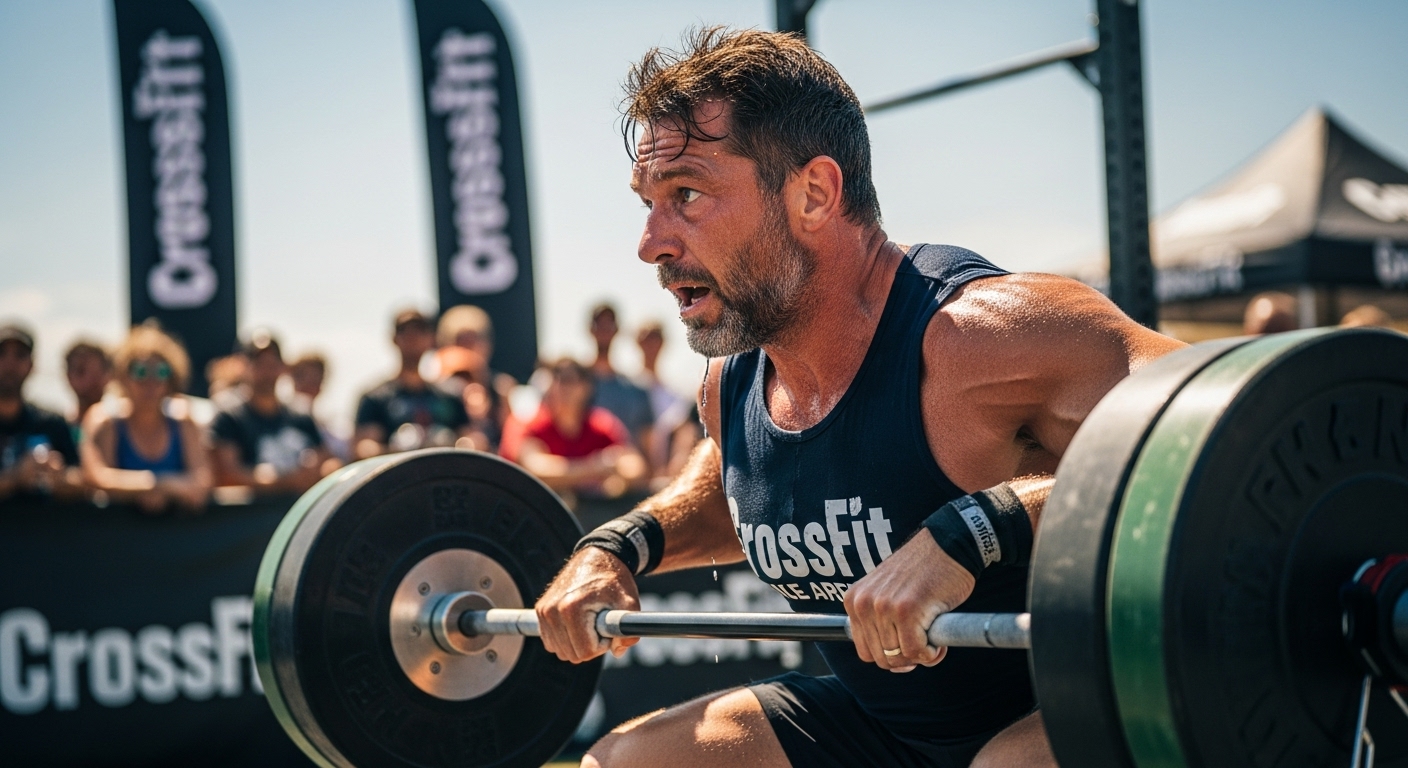Mental Performance Coaching: The Missing Link to Peak Potential

Hello! I’m Gregg Swanson, a transformation coach with a knack for turning obstacles into opportunities. My journey has included surviving extreme situations like an avalanche, excelling in high-pressure sales roles, and coaching clients for over 20 years.
Today, I’m excited to share the lessons I’ve learned about resilience and mental strength with you by diving into mental performance coaching.
Introduction: The Mind is the True Arena

In the middle of a grueling CrossFit competition, your body screams for mercy… but your mind decides whether you finish strong or collapse. I’ve been there. The barbell felt heavier than it should. My lungs were burning.
Every rep was a negotiation between quitting and pushing on. In that moment, I realized something crucial: physical training takes you far, but mental performance coaching takes you further.
The truth is, high achievers often think more effort is the answer. More reps. More hours. More grind. But without mental mastery, the extra effort just burns you out faster.
In this article, we’ll break down exactly what mental performance coaching is, why it’s the missing link for elite success, the challenges that hold most back, and the steps you can take right now to master your mental game.

What is Mental Performance Coaching?
At its core, mental performance coaching is the strategic development of your psychological skills to maximize performance in high-pressure situations.
It blends mental performance training, mindset coaching for athletes, and cognitive performance improvement techniques to help you:
✔️ Control your focus under stress by training your attention to remain steady in challenging situations.
✔️ Build resilience to setbacks by learning how to recover quickly and adapt effectively after obstacles.
✔️ Maintain confidence during slumps by reinforcing positive self-belief and focusing on strengths.
✔️ Perform consistently, even when motivation dips, by relying on established routines and mental discipline.
This isn’t just for athletes. Executives, entrepreneurs, and anyone facing competitive environments benefit from the same tools. A peak performance coach leverages principles from sports psychology, neuroscience, and mental skills training to create a personalized roadmap for your goals.
Why Mental Performance Coaching Matters
You can be physically ready yet mentally unprepared. Without mental performance coaching, your mind can sabotage your best efforts. Here’s why it matters:
✔️ Pressure Amplifies Weaknesses: Under competition, untrained mental habits become glaring liabilities, often leading to costly mistakes and missed opportunities when the pressure is highest.
✔️ Confidence Drives Execution: Belief in your ability dictates whether you attempt — and commit to — bold moves, and this self-assurance fuels decisive actions even in uncertain, high-stakes environments.
✔️ Focus Filters Out Distractions: In a world of endless noise, focus is a competitive advantage, allowing you to channel energy into what truly matters and ignore irrelevant mental chatter.
✔️ Resilience Keeps You in the Game: Setbacks are inevitable; bouncing back quickly is optional — and trainable, enabling you to recover faster and sustain momentum over the long haul.
During my CrossFit competition, the athletes who excelled weren’t just stronger or faster… they recovered mentally between events, stayed composed when a workout went sideways, and pushed harder when the crowd got loud. That’s the mental edge coaching builds.

Common Challenges and Limiting Beliefs
Many high performers resist mental performance training because of outdated beliefs:
✔️ “I’ll just tough it out.” Grit is valuable, but without strategy, it becomes stubborn burnout that drains energy, limits progress, and can lead to long-term setbacks that derail goals.
✔️ “Mindset coaching is for the weak.” In reality, the strongest seek every edge, including mental skills training, because they understand sharpening the mind amplifies physical and professional results.
✔️ “I don’t have time for that.” You don’t have time not to. Mental lapses cost more than the time invested in prevention, often leading to missed opportunities and costly mistakes under pressure.
✔️ “I was born this way.” Science shows mental performance is trainable at any stage, allowing anyone to build resilience, enhance focus, and achieve higher levels of consistent performance.
These beliefs are often rooted in cultural myths about toughness. Mental performance coaching dismantles those myths and replaces them with proven, adaptable tools.
Step-by-Step Guide to Building Mental Performance
Here’s a tactical framework to integrate mental performance coaching into your training:
1. Assess Your Mental Baseline
Track when and where you lose focus, confidence, or composure. Awareness is the first step to improvement, but go further by documenting patterns, identifying triggers, and noting emotional states during performance. This deeper analysis helps reveal hidden obstacles and opportunities for growth.
2. Define Your Performance Triggers
Identify what situations elevate your performance (crowd energy, music, competition) and which drain it (self-doubt, fatigue). Then, explore how environmental factors, personal expectations, and preparation rituals influence these responses, so you can consciously design conditions that consistently bring out your best.
3. Practice Visualization Daily
Use mental rehearsal to walk through high-pressure situations in detail. Feel the grip, hear the sounds, see yourself succeed, and incorporate all senses to strengthen neural pathways. Add emotional intensity to your imagery so your mind learns to respond with calm, control, and confidence in the real moment.
4. Build Resilience Routines
Implement short resets between challenges — breathwork, positive self-talk, or quick body scans to release tension. Also, schedule regular recovery practices outside performance, such as meditation, light movement, or gratitude journaling, to maintain mental freshness and long-term adaptability.
5. Review and Refine
Like physical training, mental performance training requires feedback loops. Analyze what works and adapt, but also solicit outside perspectives, track measurable progress, and adjust based on results. This commitment to continuous improvement ensures you’re always sharpening both your mental skills and your competitive edge.

Real-Life Success Stories
Case 1: Athlete to Champion A competitive triathlete plateaued despite peak physical conditioning. Through mental skills training and mindset coaching for athletes, she learned pre-race focus rituals and in-race recovery techniques, shaving minutes off her time.
Case 2: Executive in High Stakes Negotiations A CEO facing merger talks used cognitive performance improvement tools — including breath control and visualization — to stay calm and persuasive under pressure, leading to a deal that exceeded projections.
Mistakes to Avoid
✔️ Skipping Mental Warm-Ups: Just like muscles, your mind needs activation before performance, and incorporating brief focus drills or breathing exercises can dramatically enhance readiness and reduce costly mistakes.
✔️ Training Only in Comfort Zones: Pressure training is essential for transferring skills to competition, helping you adapt to unpredictable scenarios and reinforcing confidence in high-stakes environments where performance matters most.
✔️ Neglecting Recovery: Mental fatigue builds silently. Without recovery protocols, performance declines, decision-making suffers, and resilience weakens, ultimately eroding both consistency and the ability to sustain peak output.
✔️ Overcomplicating Techniques: Simple, consistent tools outperform sporadic complex methods, allowing you to focus energy on execution rather than getting lost in elaborate, unnecessary processes that add cognitive strain.
Advanced Strategies for Mastery
For those already experienced with mental performance coaching:
✔️ Integrate Biofeedback Tools: Track heart rate variability to fine-tune recovery and readiness, while also identifying subtle patterns in stress response to guide personalized performance interventions.
✔️ Layer Cognitive Load Training: Combine physical tasks with mental challenges to simulate pressure, enhance adaptability, and train your brain to operate at peak efficiency even under fatigue.
✔️ Work with a Specialist: A peak performance coach provides tailored drills, accountability, and advanced strategies, ensuring that training is precisely aligned with your goals and evolving performance demands.
✔️ Cross-Discipline Learning: Apply lessons from martial arts, chess, or public speaking to broaden adaptability, sharpen strategic thinking, and develop the ability to thrive in varied competitive environments.
Conclusion: Your Next Step
Mental performance coaching transforms potential into consistent high-level execution. Whether you’re lifting a barbell, leading a boardroom, or stepping into competition, the mind is your most valuable muscle. Train it deliberately, and everything else follows.
Step into your best self today… Book your Power Strategy Session and start building the mental edge you need to win.
Q&A
Q: What is mental performance coaching?
A: It’s a structured approach to developing focus, confidence, and resilience so you can perform at your best under pressure.
Q: Is mental performance coaching only for athletes?
A: No. Executives, entrepreneurs, and creatives use the same mental performance training principles to excel.
Q: How long does it take to see results?
A: Some improvements appear in weeks, but lasting change often develops over 3–6 months of consistent mental skills training.
Q: Can mental performance coaching help with anxiety?
A: Yes. Techniques like breathwork, visualization, and reframing reduce performance anxiety and improve composure.
Q: How is it different from traditional therapy?
A: Therapy often addresses past issues; mental performance coaching focuses on building skills for future performance.


